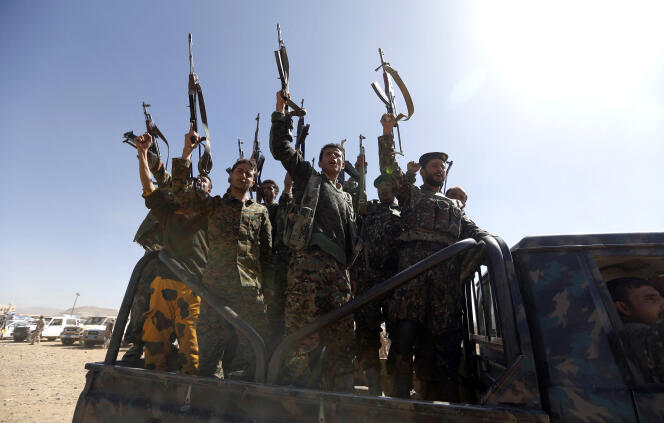


The war between Israel and Hamas has now spread to the Red Sea. In November, the Houthis, a Yemeni Shiite rebel group, carried out at least 28 attacks against commercial vessels flying flags of various nationalities in an attempt to impose a ceasefire in the Gaza Strip. In retaliation, the United States launched a military operation against the Iranian-backed movement in mid-December 2023.
This resurgence of tensions raises fears of the conflict spreading throughout the region. "Those who, in 2014, were still no more than a simple militia have developed, with Tehran's help, a solid arsenal enabling them to multiply drone or missile strikes aimed at Israeli territory or by targeting civilian and military buildings," explained Elise Vincent in Le Monde, on January 13, 2024.
Taking their name from the Al-Houthi family clan, the Houthis are the protagonists of a war that has been ravaging Yemen since 2004. This politico-military group is fighting a coalition led by Saudi Arabia, which supports the official Yemeni regime. This deadly conflict localized on the country's borders is also intertwined with international issues: the rivalry between Sunni and Shiite Muslims, driven by the confrontation between Saudi Arabia and Iran and now the Israeli-Palestinian conflict (Tehran being the main supporter of the Lebanese Hezbollah, itself an ally of Hamas).
The history of the use of the word "Houthi" in Le Monde reveals how the scale of the conflict in Yemen grew over the years. The first time the newspaper mentioned this insurgent group was on August 25, 2009, in a brief Reuters article reporting the death of around 100 rebels killed by government forces in the northern province of Aram. "This figure was denied by a spokesman for the Houthi insurgents."
A few weeks later, on September 11, 2009, in a column entitled "Yemen, the forgotten war," Gilles Paris touched on this "anonymous civil war" ignored by all. "This conflict (...) has probably already claimed nearly 10,000 lives and displaced thousands of people," he wrote before explaining its roots. "As president of the Yemen Arab Republic (in the north) from 1978, and then of reunified Yemen since 1990, the unmovable President Ali Abdullah Saleh accuses these rebels of wanting to overthrow his regime (...) and of being manipulated by Iran."
On November 10, 2009, Paris, a special correspondent to the capital Sanaa, pointed out that "this war interspersed with truces continues to grow in intensity." The rebels had dared cross the border into Saudi Arabia. The journalist met Rashad al-Alimi, the "energetic and sober" deputy prime Minister in charge of the strategic security sector, who understood that the conflict would likely last: "We're going to need time." Al-Alimi claimed that there was no doubt that the Houthi rebellion followed an Iranian agenda: "What they want (...) is to carve out a territory between the Saudis and us, with access to the sea, exactly like the Lebanese Hezbollah."
You have 55% of this article left to read. The rest is for subscribers only.
